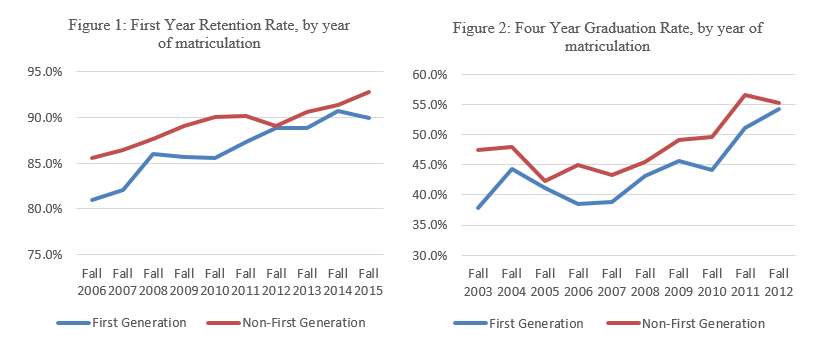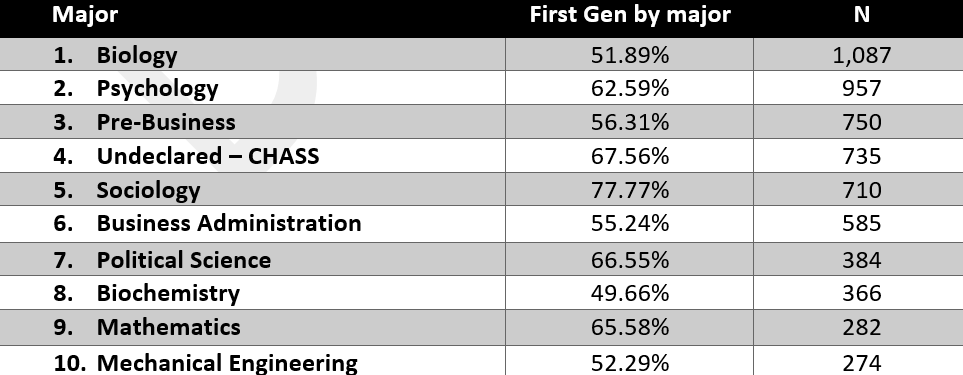UCR First-Generation Research
As of Fall 2021, first-generation students comprised 51% of new and continuing students - compared to less than half in the UC system and 34% nationally. Approximately 46% of students who entered in the fall of 2022 were first-generation students. Outreach to faculty has yielded 114 faculty who self-identified as first-generation (as of August 2018).
College Profiles
Data profiles for each college filtered by first-generation student status for 2019.
- Bourns College of Engineering (BCOE)
- College of Humanities, Arts, and Social Sciences (CHASS)
- College of Natural and Agricultural Sciences (CNAS)
- Graduate School of Education (GSOE)
- School of Business
- School of Public Policy (SPP)
Retention and Graduation
Among cohorts of earlier cohorts of students, there is a gap in one-year retention rates between first generation and non-first generation students. However, both groups show improved retention rates over time and later cohorts of first generation students are retained at about the same rate as non-first generation students. The pattern is similar for four-year graduation rates with an increase over time and some narrowing of the gap between first generation and non-first generation students. Four-year graduation rates for first-generation are 55% (fall 2012 cohort) and six-year graduation rates are 72% (fall 2010 cohort) at UCR compared to national degree attainment rates of 27% and 50%.
Majors
By Major, the ten majors with the largest number of first generation students includes majors from most colleges. While Biology has more than a thousand first generation student, they make up almost 80% of all Sociology majors.
College
By College, Fall 2016 demographic data shows a higher than average concentration of undergraduate first-generation students in CHASS and a lower than average concentration in BCOE. CNAS, SOBA, and SPP show only slight variation from the campus average.


